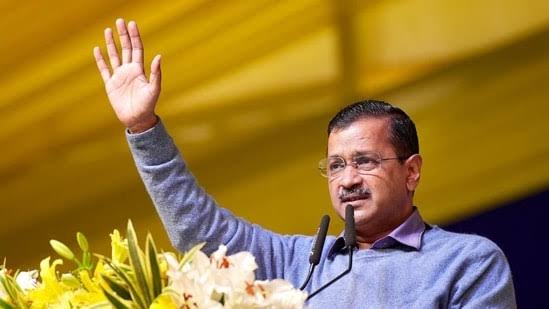Table of Contents
Arvind Kejriwal Tables Motion of Confidence Amidst Political Turmoil in Delhi
In recent developments in Delhi’s political landscape, Chief Minister Arvind Kejriwal has taken a bold step by presenting a motion of confidence in the Delhi Assembly. This move comes against the backdrop of escalating tensions fueled by repeated summons from the Enforcement Directorate (ED) and allegations of attempted government destabilization. Kejriwal’s decision to table this motion aims to demonstrate the unity and resilience of the Aam Aadmi Party (AAP) in the face of time of adversity.
Motion of Confidence Amidst Summons

The motion of confidence presented by Chief Minister Kejriwal serves multiple purposes at same time. Firstly, it is a strategic response to the ongoing summons issued by the Enforcement Directorate in connection with the excise policy-linked money laundering case. The repeated summoning of CM of Delhi Arvind Kejriwal has raised concerns and led to speculation regarding the motives behind such actions. By tabling a motion of confidence amidst these legal challenges, Kejriwal aims to project an image of strength and stability within his party.
Allegations of Political Maneuvering
Furthermore, Kejriwal’s motion of confidence serves as a rebuttal to recent allegations made against the Bharatiya Janata Party (BJP). Kejriwal has accused the BJP of attempting to lure AAP MLAs with bribes in a bid to topple his government. These allegations highlight the cutthroat nature of Delhi’s political arena and the lengths to which rival parties may go to gain a foothold in power. By bringing the motion of confidence, Kejriwal seeks to reaffirm the integrity and unity of the AAP in the face of external pressures.
Challenges and Court Proceedings
In addition to navigating the complexities of political maneuvering, Kejriwal faces legal challenges as well. A Delhi court has summoned him to appear in connection with the ongoing liquor policy case. This legal obligation adds another layer of complexity to the situation, requiring Kejriwal to balance his political responsibilities with his legal obligations. The court’s directive underscores the importance of upholding the rule of law even amidst the tumult of politics.
Heightened Tensions and Show of Unity
The timing of Kejriwal’s motion of confidence is significant, occurring amidst heightened tensions between the AAP and the BJP. The Chief Minister’s proactive stance aims to showcase unity within the AAP ranks and reinforce his administration’s legitimacy in the face of external pressures. By presenting a motion of confidence, Kejriwal sends a clear message to his opponents that the AAP remains united and resolute in its commitment to governance.
Legal Obligations and Political Resilience
Kejriwal’s decision to table a motion of confidence underscores his resilience and determination to lead Delhi forward despite the challenges he faces. By navigating the complexities of legal proceedings and political maneuvering, Kejriwal demonstrates his commitment to upholding democratic principles and serving the interests of Delhi’s residents. In the face of adversity, the Chief Minister’s actions serve as a testament to his unwavering resolve and political acumen.
Conclusion
In conclusion, Arvind Kejriwal’s motion of confidence amidst political turmoil in Delhi reflects his strategic response to legal challenges and allegations of government destabilization. By showcasing unity and resilience within the AAP, Kejriwal seeks to reaffirm his administration’s legitimacy and commitment to governance. As the Chief Minister navigates the complexities of politics and law, his actions serve as a reminder of the importance of upholding democratic principles and serving the interests of the people.



